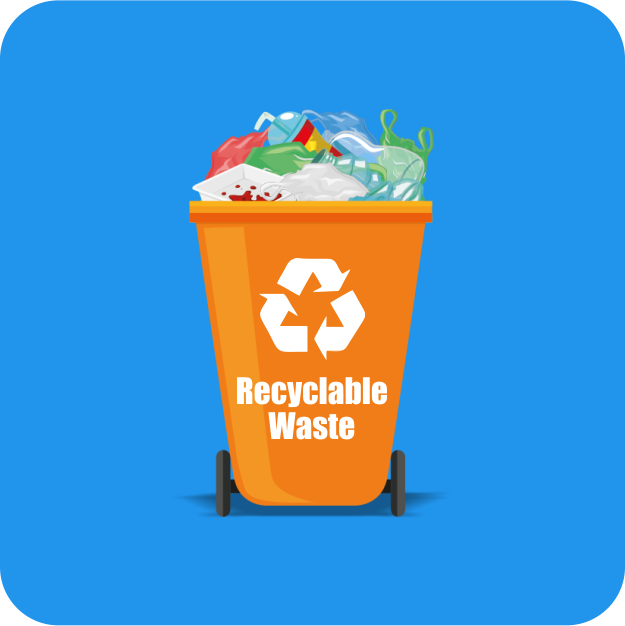Recyclable Waste
Recyclable materials include many kinds of glass, paper, cardboard, metal, plastic, tires, textiles, batteries, and electronics. The composting and other reuse of biodegradable waste—such as food and garden waste—is also a form of recycling.
“Recycled Content” means the total percentage of recovered material in a product, including pre-consumer and postconsumer materials.
Recycling is a method of procedure that includes the collection and breaking down of waste material to create something new out of it. The process was introduced sot that the non-biodegradable materials can be melted or break down to create something useful.
Recycling prevents the emissions of many greenhouse gases and water pollutants, and saves energy. Using recovered material generates less solid waste. Recycling helps to reduce the pollution caused by the extraction and processing of virgin materials.
Recycling can help reduce the quantities of solid waste deposited in landfills, which have become increasingly expensive. Recycling also reduces the pollution of air, water, and land resulting from waste disposal.

